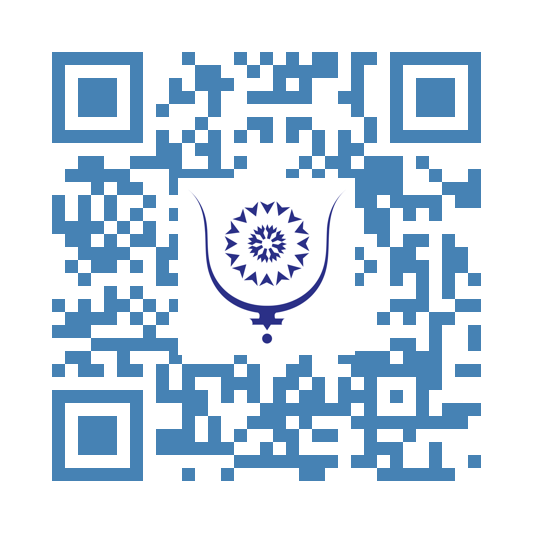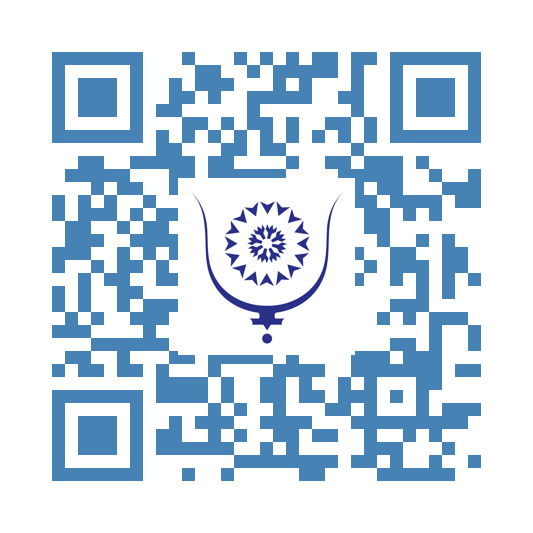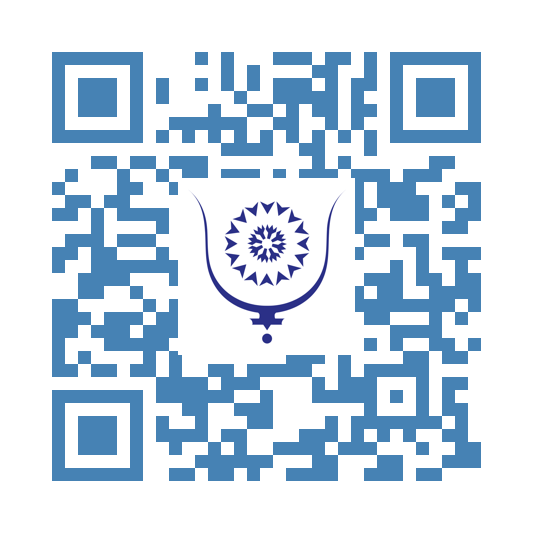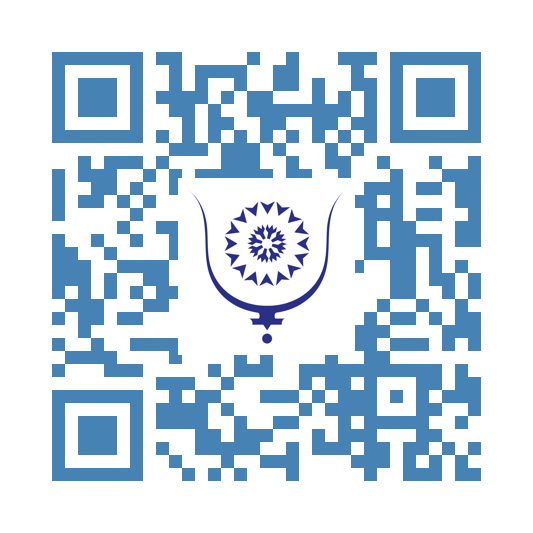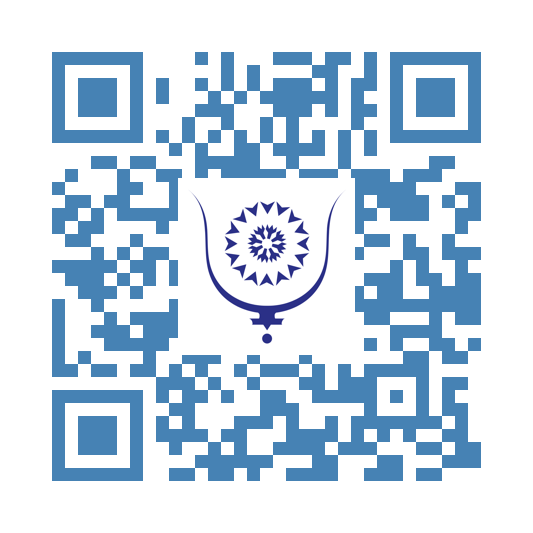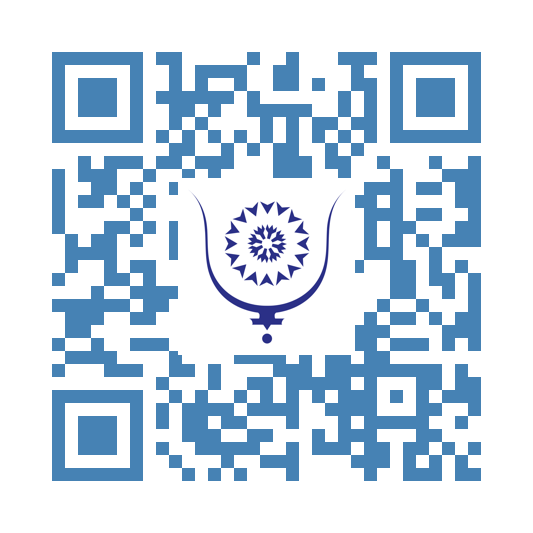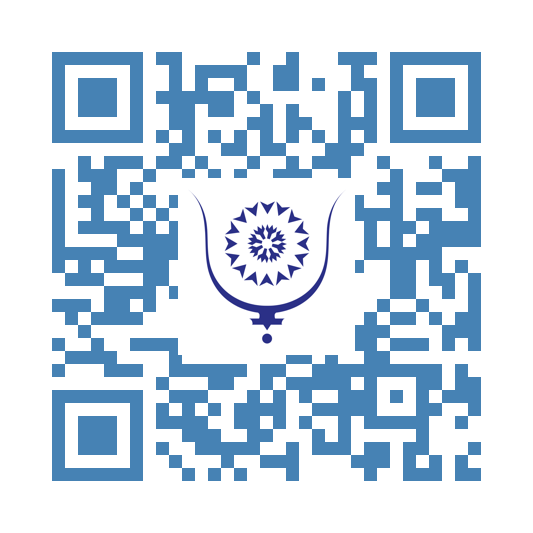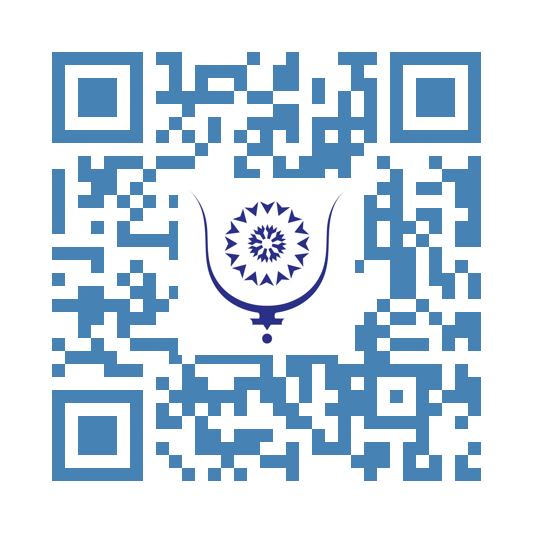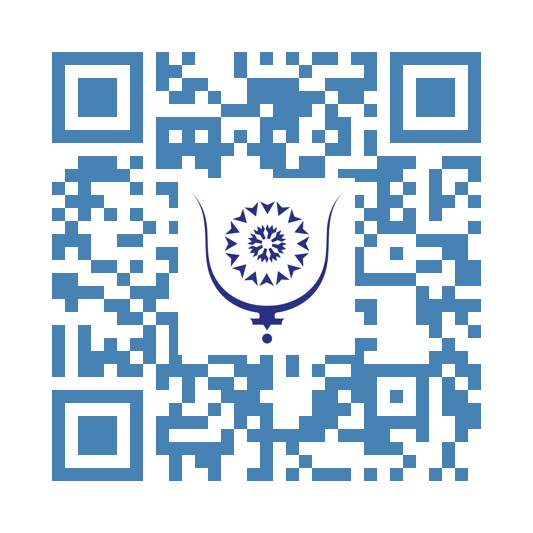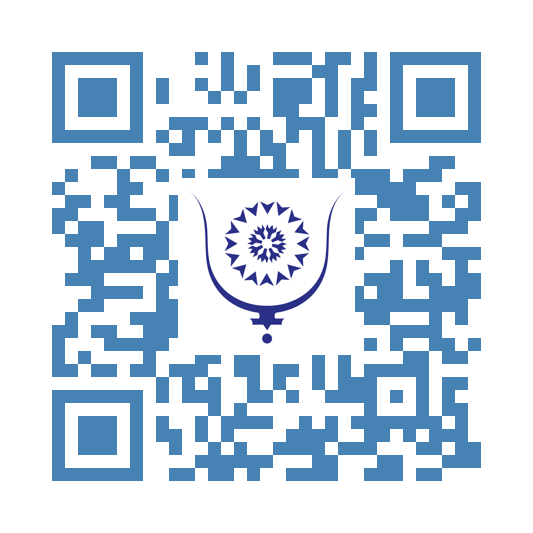The Picatrix
81
The Picatrix is one of the most influential and enigmatic texts in the history of Western esotericism. Originating in the Islamic world under the title Ghāyat al-Ḥakīm (“The Goal of the Wise”), the Picatrix is a comprehensive treatise on astrology and magick—the practice of harnessing celestial forces to affect material and spiritual realities. Written in Arabic in the 10th or 11th century and later translated into Latin in the 13th century, the Picatrix became a cornerstone of Renaissance occult philosophy, influencing figures such as Marsilio Ficino, Cornelius Agrippa, and Giordano Bruno. Today, it remains a vital source for students of Hermeticism, ceremonial magic, and astrological thought.
The text is attributed “al-Majriti,” a name linked to the 10th-century Andalusian scholar Maslama al-Majriti, though its true authorship remains uncertain. The Picatrix is composed of four books, comprising am extensive body of magical theory and practice derived from Greek, Persian, Indian, and Arabic sources. It synthesizes astrology, natural philosophy, alchemy, talismanic magic, and cosmology into a grand vision of the universe as a living, interrelated system of energies that can be accessed and manipulated by the initiated practitioner.
At its core, the Picatrix presents a worldview in which everything is connected through celestial correspondences. The stars, planets, and zodiac are not merely distant bodies, but intelligent forces (often referred to as spirits or intelligences) that shape life on Earth. By understanding the timing, nature, and hierarchies of these celestial influences, the magician can create talismans, perform rituals, and engage in spiritual ascent. These practices are meant not only to acquire worldly benefits—such as love, protection, wealth, or knowledge—but also to align the soul with the divine order of the cosmos.
The Picatrix outlines:
- Detailed planetary correspondences, including planetary spirits, colors, stones, herbs, animals, and incenses;
- Astrological timing for magickal operations, especially elections for creating talismans and invocations;
- Rituals for contacting planetary intelligences or channeling their power into material forms;
- Philosophical and spiritual foundations, arguing that magick is a divine science requiring purity of soul and alignment with the One.
Importantly, the Picatrix treats magick as a sacred art, not merely a mechanical or superstitious activity. Its author warns repeatedly that the true magician must be a philosopher, guided by intellect, discipline, and virtue. In this sense, the text reflects a Neoplatonic essence, where matter is seen as a shadow of spirit, and magick as a bridge between the visible and invisible worlds.
The language of the Picatrix is often dense, symbolic, and encoded. It contains long lists of ritual ingredients, planetary names, and talismanic configurations. Some of its instructions are highly technical; others are deeply mystical, involving dream incubation, purification, meditative states, and ecstatic union with celestial beings. This dual nature—simultaneously scientific and mystical—has made the Picatrix a text of enduring fascination.
Its influence on Renaissance occultism was immense. Translators and scholars such as Albertus Magnus, Pietro d’Abano, and Marcilio Ficino drew upon its doctrines in the development of astral magic and natural philosophy. Even today, the Picatrix is considered a masterwork of magical cosmology, representing one of the most complete works of how the stars and the soul interact.
To summarize, the Picatrix is not simply a magickal grimoire—it is a profound philosophical treatise on the structure of reality and the place of humanity within it. It teaches that the macrocosm and microcosm are reflections of one another, and that the wise—through discipline, knowledge, and intention—can influence one to elevate the other. As such, it stands as a remarkable synthesis of astrology, magic, and metaphysics, offering both a roadmap for practical sorcery and a guide for spiritual ascent.
Share:
The Picatrix
copy:
https://bluwr.com/p/227545631
Pigeon
289
I saw a pigeon in the valley
who was crying in sorrow and called in vain
his lover who left him this morning
He repeated to anyone who would listen to him
how much his heart although tender
feels now emptied of love
after this departure that left him as dead
He lost the joy of living
and love in turn
He finds this journey through the desert quite long
and no one is there to keep him company
It’s obvious he misses her and it’s quite clear
And sinks into sadness and melancholy
Even with time it is impossible for him to forget
the one he nevertheless loved madly
In love, his heart is well bruised
and does not help him overcome so much spite
And even if his appearance seems royal
His state of mind is so pitiable
Translated by Dr Bouchareb Fouad
October 19, 2022
All rights reserved
Share:
Pigeon
copy:
https://bluwr.com/p/226232640
Human Rights Council: International Support for Morocco’s Sovereignty over Its Southern Provinces, a Setback for the Separatists...
409
At the opening of the 59th regular session of the United Nations Human Rights Council, held in Geneva at the Palais des Nations from June 16 to July 9, 2025, the Moroccan ambassador Omar Zniber delivered a solemn statement on behalf of about forty countries, reaffirming their full and complete support for Morocco’s sovereignty over its Southern provinces. The ambassador boldly emphasized that Morocco has maintained for years a “constructive, voluntary, and profound” cooperation with the Office of the High Commissioner for Human Rights (OHCHR), tirelessly working to promote and respect human rights throughout its entire territory, including, of course, in the said provinces. Zniber did not hesitate to underline, on behalf of the group, that the UN Security Council has consistently praised in its resolutions the key role of the national and regional human rights commissions in Dakhla and Laâyoune, as well as the Kingdom’s transparent and efficient collaboration with the OHCHR’s special mechanisms and procedures.
Furthermore, the ambassador highlighted the recent opening of multiple consulates general in Laâyoune and Dakhla, describing this dynamic as an “essential lever” to stimulate economic cooperation, investment, and local development for the benefit of the populations, thereby contributing to regional and continental development. He did not mince words in recalling that the so-called Western Sahara issue falls exclusively under the Security Council’s remit, which unequivocally recognizes the relevance and credibility of the Moroccan autonomy plan presented in 2007; a plan that the Security Council acknowledges as a serious and pragmatic solution to the artificial dispute, a legacy of bygone times. On behalf of the same group, the ambassador expressed unconditional support for UN efforts aimed at reviving the political process within the framework of the Geneva roundtables and in accordance with Security Council resolutions, notably resolution 2756 of October 31, 2024. This resolution, it should be recalled, advocates a realistic, pragmatic, and durable political solution based on compromise.
Finally, Ambassador Zniber stressed that resolving this dispute will “undeniably respond to the legitimate aspirations of the peoples of the region in terms of integration and development,” a vision that Morocco strives to realize through sincere and continuous efforts.
This timely intervention comes as the World Human Rights Council and the United Nations Security Council have recently addressed the so-called Western Sahara issue in a context marked by the nervousness and incoherence of separatists and their sponsor.
The Security Council had extended the mandate of MINURSO until October 31, 2025, emphasizing the importance of continuing negotiations under UN auspices.
Resolution 2756 was adopted, it must be noted, by 12 votes in favor, 2 abstentions, and no votes against. The Security Council insists on a “realistic, pragmatic, durable, and mutually acceptable” political solution based on compromise. The text supports the action of the Secretary-General and his personal envoy to facilitate negotiations. It also encourages cooperation with the OHCHR to improve the human rights situation, while completely disregarding and rejecting the amendments proposed by Algeria aimed at expanding MINURSO’s mandate to “record human rights violations.”
All recent Security Council resolutions and reports tend to recognize the Moroccan autonomy initiative as a serious and credible solution and strongly emphasize the necessity of including Algeria in the roundtables, highlighting and confirming its essential role in the dispute, which it strives to perpetuate by any means. This orientation is seen as favorable to Morocco, which enjoys growing international support, notably with the opening of numerous consulates in the two major cities of the concerned provinces and, of course, with the backing of three permanent Security Council members and more than 116 other countries.
Paradoxically, so-called Sahrawi human rights defenders dared the perilous exercise of testifying before the UN Special Committee on Decolonization (C-24), alleging serious violations committed by Moroccan forces, violations of which they seem to be the only ones aware. They denounced abuses described as war crimes and crimes against humanity, nothing less. In ridiculous language excesses that the audience paid no attention to, they spoke of systemic repression, harassment, and marginalization of Sahrawi activists. Undoubtedly, they had in mind what happens in the Tindouf camps. Despite the audience’s indifference, which never took them seriously, these pseudo-defenders called for the urgent establishment of a UN mechanism to monitor and protect human rights in the region.
Short of arguments and constructive proposals, Algeria makes them repeat talking points that only they seem to believe, and even then, barely.
The Polisario Front, in its delirium, goes as far as to consider Morocco’s candidacy for the presidency of the UN Human Rights Council as an affront, speaking of illegality and Moroccan occupation of Western Sahara.
These tribulations will obviously remain without follow-up or effect, except to deceive the Algerian people into swallowing numerous bitter pills and enormous budgets wasted on a cause from which they do not benefit; colossal sums sunk into a lost cause since 1976. The Polisario and the so-called petitioners also aimed to soothe the wounded hearts of the Tindouf detainees, making them believe they live in a better world than on the other side of the border.
The World Human Rights Council and the UN Security Council have actually adopted very clear texts that, while recognizing the need for a political solution, lean in favor of the Moroccan position, notably by recognizing its autonomy initiative and maintaining a negotiation framework including Algeria. These decisions and resolutions have all remained insensitive to the pleas of the separatists, ironically supported by Algeria, of course, and by countries all flagged by the World Human Rights Council for serious violations committed against their own nationals, which is not the case for the Kingdom, including, of course, in its Southern provinces, hence the ease with which Moroccan diplomats intervene before these bodies, it must be recalled.
Share:
Human Rights Council: International Support for Morocco’s Sovereignty over Its Southern Provinces, a Setback for the Separatists...
copy:
https://bluwr.com/p/225661270
To all women I live ❤️
498
To all the women I love
Great and sublime celebration
that makes my head spin
For great ladies
We love all these women
who stand up to us
for much greater equality
of friendship and fraternity
What would we be without these beautiful creatures!
Gift from heaven, jewels of nature?
With hearts completely made of gold
Avoiding harming us
Full of love and passion
Pride of the entire nation.
These grandmothers we adore
These mothers we love
These aunts we cherish
These wives we adore
These sisters we protect
These colleagues we rub shoulders with
For the love we share
So happy birthday, ladies
Open your sesame to us
Because without us men
And despite all our faults
Our presence with you
Is not superfluous
Far from it…
Dr. Bouchareb Fouad
All right are reserved
Share:
To all women I live ❤️
copy:
https://bluwr.com/p/224884701
The Garonne
545
The Garonne
On the Pont Saint Pierre
I contemplate the Garonne
Majestic as always
Its waters flow
And purr slowly
As if by magic to say hello to me
On the Pont Saint Pierre
The Hôtel-Dieu Saint-Jacques
rises like a crack
Nostalgic for medicine
of alchemy and penicillin
On the Pont Saint Pierre
I walk humming a chance at love
waiting for nightfall
And watching the day slip away
Dr. Bouchareb Fouad
Toulouse, October 5, 2022 and
May 31, 2025
All rights reserved
Share:
The Garonne
copy:
https://bluwr.com/p/224598866
Morocco 2030: Football as a Geopolitical and Strategic Lever While Waiting for Other Sports Disciplines...
606
The Kingdom of Morocco, through football, is today establishing itself as a major player in sports geopolitics. It clearly demonstrates its determination to carve out a prominent place on the international stage in this field. This vision comes from the highest levels of the State and is also shared by the Moroccan people, who have embraced this choice. This dynamic is notably illustrated by the co-hosting of the 2030 World Cup with Spain and Portugal, a historically significant event symbolizing a major political and diplomatic victory.
This co-organization of the 2030 World Cup alongside two European states is the result of a long, patient, and determined strategy. It stems from an enduring conviction that has never wavered. After five unsuccessful bids, the Kingdom managed to convince FIFA and its member federations, becoming the second African country to host the tournament after South Africa in 2010. In fact, aside from the political contingencies of the time, the global sympathy for Nelson Mandela, and the questionable practices of FIFA decision-makers then, South Africa would never have been able to host the World Cup before Morocco for obvious footballing reasons.
The Kingdom has nonetheless been rewarded for its patience, resilience, and conviction. It will host the centennial World Cup, an edition exceptional in every respect and designed under a cost-sharing logic. It will have a considerable economic and diplomatic impact, strengthening ties between Europe and Africa and highlighting football’s role in bringing peoples closer, as well as in the social and sporting development of the region. Never has Europe been so close and cooperative with the African continent—and vice versa. Morocco is organizing on behalf of an entire continent.
Football is a true soft power tool that Morocco wields to strengthen its diplomatic relations in Africa. Did His Majesty the King not order the Local Organizing Committee to include expertise from across the continent?
The Royal Moroccan Football Federation has long multiplied partnerships with African federations, providing financial and logistical support and inviting many countries to use the country’s numerous modern infrastructures for their training or competitions. This proactive and positive policy naturally consolidates Moroccan influence on the continent, in a context where the country seeks to counter the influence of other regional powers that do not look upon it favorably.
From a purely footballing standpoint, Morocco is gradually asserting itself as an African powerhouse. It wins or participates in all major continental finals with a steady rise in the performance of its national teams. This success is supported by massive investments in player development, with the construction of high-performance training centers such as the Mohammed VI Academy in Salé.
The Kingdom is also increasingly exporting players and coaches to leagues in Europe, the Middle East, and Africa. This contributes to strengthening its image and influence. For example, Jamal Selami recently qualified Jordan for the World Cup for the first time in its history, a team propelled by his compatriot Houcine Amouta.
Moreover, the Moroccan diaspora plays a key role: many players born or trained abroad enthusiastically choose to wear the Moroccan colors, proud and unashamed to represent their country of origin. This mobilization of diaspora talent is a strategic asset that enriches the national teams and enhances their reach.
Morocco therefore does not limit itself to mere sporting ambition in football. It conceives football as a vector of international influence, a territorial marketing lever, as evidenced by the strategic agreement “Morocco, Land of Football” signed between the FRMF and the Moroccan National Tourism Office. This alliance reflects the Kingdom’s desire to build a strong, inspiring image and attract enthusiasts and tourists from around the world. It is a continuation of the policy of building and strengthening the Morocco brand, which is increasingly asserting itself globally in the economic sphere. Morocco no longer hesitates to admit it is an industrial power asserting itself more and more every day.
This approach fits into a global geostrategic perspective where football is called upon to reinforce Morocco’s position on the African and international stage, assert its continental leadership, and support its diplomatic advances, notably on the sensitive issue of the southern provinces.
By using sport as a diplomatic and economic tool, Morocco aims to consolidate its alliances, extend its influence, and prepare a future where it occupies a central position in relations between Africa, Europe, and the world—and it makes no secret of this. Everyone today understands that to engage with Africa, especially on economic issues and certain political aspects, the Kingdom is indispensable.
The question now arises for other sports disciplines. In fact, this football policy could only be implemented and succeed thanks to the royal vision in this domain, understood by a federation that, before all others, corrected its course following the royal letter addressed to the world of sport in 2008. The FRMF has smartly set itself in motion, now reaping the first results of its commitment.
Unfortunately, other federations have remained in the shadows, mired in a certain mediocrity or even lethargy that makes them increasingly ineffective and criticized. Some, and not the least, are simply insignificant at the continental and global level, or have become so due to lack of foresight and competence, despite the available resources and the green light for sports in general.
Developing other disciplines could diversify the country’s sports soft power, strengthen its diplomatic ties, and better distribute the economic and cultural benefits of sporting events across the national territory. Diversification is precisely at the heart of the royal vision.
Meanwhile, Morocco is making football a major political asset, blending sport, diplomacy, and economic development to establish itself as an unavoidable player in sports geopolitics.
The 2030 World Cup is both a symbol and a catalyst of this ambitious strategy, which promises to reshape regional and international balances around a ball rounder than ever—while awaiting the awakening of other sports disciplines.
Share:
Morocco 2030: Football as a Geopolitical and Strategic Lever While Waiting for Other Sports Disciplines...
copy:
https://bluwr.com/p/224037404
Blind love
843
Blind love
To the one who looks at me and pretends not to see me
While she is the source of my sorrows and setbacks
Yet she confesses to others that she loves me who believes
Leaning on her balcony every evening
She doesn't care that I always be there at my perch Waiting for a signal from her, a hope
To the one who looks at me and pretends not to see me
While she is the source of my sorrows and my setbacks
In spite I keep drinking And drinking get drunk every night
Sitting in front of her window on the sidewalk
To the one who looks at me and pretends not to see me
While she is the source of my sorrows and my disappointments
I say that this story is over now
And that elsewhere I will go to see
Dr Bouchareb Fouad July 5, 2022 Inspired by a piece of Andalusian music
All rights are reserved
Share:
Blind love
copy:
https://bluwr.com/p/219767968
Mauritania Facing Security, Diplomatic, and Geopolitical Recomposition Challenges in the Sahel..
1184
After four years of intervention, the Russian paramilitary group Wagner officially announced its withdrawal from Mali in June 2025. It had been active in the region since 2021. This departure occurs in a context marked by a resurgence of jihadist attacks weakening Malian and regional stability.
Wagner’s departure does not signify a Russian disengagement, as its missions are being taken over by a new paramilitary organization, the Africa Corps, directly controlled by the Russian Ministry of Defense. This group, born after the failed coup attempt by former Wagner leaders in 2023, continues Russia’s strategy of influence in Africa, notably in what is declared to be the training of Malian forces to face the rising terrorist threats.
This transition illustrates the complexity of the security context in the Sahel, where Wagner’s relative failure to stabilize Mali and contain Tuareg and jihadist armed groups forces Moscow to readjust its methods while maintaining its strategic influence. This new situation raises serious questions about the real capacity to contain terrorism in the region, especially at Mali’s border with Mauritania.
Meanwhile, the Polisario Front, a separatist movement, is increasingly associated with terrorist activities. In Spain, a militant affiliated with the Polisario was arrested for preparing terrorist acts against Morocco, with evidence of incitement to jihadism and acquisition of explosive materials.
This radicalization fits into a dynamic where the Polisario cooperates more closely with Islamist groups, notably benefiting from the support of Iran and its proxies including Hezbollah. Well-documented longstanding links exist between the Polisario and terrorist groups in the Sahel, such as the Islamic State in the Greater Sahara, whose founders were former Polisario fighters.
This collusion manifests through logistical support, arms transfers, and increased militarization, including the use of suicide drones supplied by Iran.
These facts reinforce the perception of the Polisario not only as a separatist actor but also as a vector of instability and terrorism in the region.
At the same time, Morocco has recorded numerous diplomatic breakthroughs and growing international pressure to formalize Moroccan sovereignty over the Western Sahara provinces.
In 2024, Morocco achieved several major victories in the international recognition of its sovereignty over its southern provinces. More than 116 countries, including powers like France, now support the Moroccan autonomy plan as the only viable solution to the conflict. This position was recently shared by the United Kingdom following the United States. Influential African countries such as Côte d'Ivoire and, more recently, Ghana have done the same. The fresh stance of Zuma’s party in South Africa further confirms this evolution.
Morocco’s diplomatic progress relies on skilled international relations management and active engagement in regional security, notably in the Sahel. The Kingdom’s tact is evident as it avoids embarrassing its southern neighbor Mauritania, which has long recognized the so-called RASD puppet entity.
It is also important to recall the U.S. intention to classify the Polisario Front as a terrorist organization, a measure supported by analyses documenting its links with Hezbollah, the PKK, Iran’s Islamic Revolutionary Guard Corps, Cuba, Venezuela, and other states unfriendly to the U.S. This classification aims to reveal the true nature of the Polisario.
In this context, Mauritania finds itself in turmoil. Things have moved too fast. The comfort it once enjoyed is gone. The conjunction of these developments forces the country’s authorities to rethink their political positioning.
Faced with the recurring fragility caused by the Polisario, which hinders its development and threatens its stability, and observing Algeria’s inability to move beyond Boumediene’s legacy to ensure effective security, Mauritania is inevitably pushed toward rapprochement with Morocco.
Morocco is perceived as the only actor capable of guaranteeing lasting security in the region, especially against rising terrorist threats and current geopolitical challenges. Some Mauritanian publications already address this question very directly.
This shows that Mauritanian decision-makers are indeed embracing this paradigm shift. Recent movements by the Mauritanian army align with this trend, especially as some Polisario cadres no longer hesitate to threaten Mauritania, which they label as a traitor.
This tension further complicates Mauritania’s capacity to secure its borders, a young country whose resources remain very limited given the vastness of its borders, notably with Mali and Algeria.
In this environment, Algeria, a blind and staunch supporter of the Polisario, today appears more trapped in rhetoric without real capacity for action, which weakens its regional position. Mauritania seems to have understood this for some time, though perhaps not openly.
Conversely, Morocco, strengthened by its diplomatic successes and proven commitment to counterterrorism, appears as an indispensable partner for Mauritania in its quest for stability and prosperity.
It would therefore not be surprising to see Mauritania in the very near future withdraw its recognition of the so-called RASD puppet entity or at least move away from what it has so far called a positive neutrality.
In fact, Mauritania has already distanced itself somewhat from the separatists, which does not please Algeria, which is losing influence.
The withdrawal of Wagner from Mali, the radicalization of the Polisario which seems overwhelmed, Morocco’s diplomatic successes, and the likely imminent designation of the Polisario as a terrorist organization by the U.S. clearly redraw the geopolitical map of the Sahel and the Maghreb.
Mauritania is probably preparing for this and even taking the lead. In this shifting context, it is pushed toward a natural strategic realignment with Morocco, the only actor capable of offering a credible security alternative against terrorist threats and development challenges.
This repositioning marks a major step in the reshaping of regional alliances, with profound implications for the future stability of the Sahel and the reconfiguration of North Africa.
Share:
Mauritania Facing Security, Diplomatic, and Geopolitical Recomposition Challenges in the Sahel..
copy:
https://bluwr.com/p/217585260
His Majesty King Mohammed VI: Heir to a Tradition, Architect of Sovereign Modernity
1188
Long before the major transformations of the 1920s, Morocco experienced significant attempts at modernization under the reign of Hassan I (1873-1894).
A visionary Sultan, Hassan I undertook reforms of the administration, strengthened the army, and developed infrastructure, notably roads and communications. His efforts encountered a conservative internal context, marked by resistance from the fouqahas (Islamic scholars) and elites attached to traditional structures. He also faced increasing pressure from European powers seeking to establish themselves in Morocco. These dual obstacles limited the scope of the reforms but nevertheless laid the foundations for gradual modernization.
Before him, Sidi Mohammed ben Abdallah, an enlightened 18th-century Sultan, had already played a major role in opening Morocco to the world. He notably founded and developed the port of Essaouira (then Mogador) in 1765, conceived as a strategic commercial hub to control foreign trade. Thanks to its geographic position and infrastructure, Essaouira quickly became an essential crossroads for exchanges between Sub-Saharan Africa, Europe, and the Mediterranean, thereby strengthening the kingdom’s economic and diplomatic ties.
Other sovereigns continued this dynamic. Moulay Abdelaziz (1894-1908) pursued certain military and administrative reforms despite increasing instability. Under the French protectorate, Moulay Youssef (1912-1927) had to navigate colonial domination while trying to preserve some Moroccan sovereignty.
Ascending the throne in 1927 at only 19 years old, Mohammed V became a symbol of Moroccan resistance against the French protectorate. Rejecting colonial domination, he supported the nationalist movement, notably during his historic speech in Tangier in 1947, where he called for Moroccan unity and independence. Exiled from 1953 to 1955, his triumphant return marked the beginning of the end of the protectorate. In 1956, he proclaimed independence and laid the foundations of a sovereign Morocco. He then engaged in building a modern state by reforming institutions, unifying the territory, developing education, and initiating economic modernization, creating the Royal Armed Forces and other security bodies while affirming national cultural identity.
Son of Mohammed V, Hassan II (1961-1999) consolidated the Moroccan state by establishing a constitutional monarchy and developing essential infrastructure. He skillfully combined tradition and modernity, strengthening national sovereignty while opening the country to foreign investment and international exchanges. Under his reign, Morocco made major advances in economic, social, and cultural fields, laying the groundwork for sustainable modernization and preparing the terrain for current transformations. Hassan II is remembered for gradually recovering the territorial integrity of the Kingdom in a difficult, even hostile, internal and international context.
Under Mohammed VI, Morocco is undergoing a profound transformation, comparable in scale to that of the 1920s but within a sovereign and globalized context. His reign, marked by a clear vision and firm will, combines respect for traditions with openness to modernity. The country is investing massively in transport infrastructure: roads, high-speed trains, airports, and public and private facilities throughout the territory.
Integration with Western economies has strengthened, making Morocco a preferred destination for foreign direct investment, attracting billions of dollars annually. Flagship projects, especially in preparation for the 2030 World Cup, are stimulating the development of sports, tourism, and cultural infrastructure, affirming the country’s international influence.
At the same time, social and economic modernization is underway, with initiatives to improve education, health, innovation, and sustainable development, positioning Morocco within a global and modern dynamic. The country has simply tripled its GDP in less than twenty years.
All this reflects continuity and renewal. Morocco is, in fact, in perpetual reinvention.
The parallel between the major transformations of the 1920s and the era of Mohammed VI reveals a Morocco capable of constant reinvention. While the metamorphosis of the 1920s was dictated by a colonial context, today’s transformation is the fruit of a sovereign ambition, focused on balanced, inclusive, and sustainable development. It embodies the will of a sovereign with a multilateral vision. No domain is left aside or forgotten.
The great projects of yesterday and today testify to an even stronger and more determined energy for transformation, with different goals: to move from a Morocco under tutelage, dependent and powerless in the face of circumstances, to a major player on the international stage, capable of attracting and cooperating with the world and building its future with confidence.
Today, Morocco fits into a long tradition of historical metamorphoses. Each era has shaped a dynamic country, attempting modernity and ambitions, sometimes successful, sometimes aborted. Yet it has remained faithful to its millennial history and cultural heritage. Today it is rising, modernizing, and asserting itself as an emerging country on which one can rely.
The Kingdom of Mohammed VI is thus ready to meet the challenges of the 21st century with boldness and determination, armed this time with institutions, clear and powerful visions and strategies. The royal will thus guides the country toward genuine development benefiting all, an indispensable geostrategic position, sustainable economic breakthroughs, a reliable political system, and truly irreversible progress.
Share:
His Majesty King Mohammed VI: Heir to a Tradition, Architect of Sovereign Modernity
copy:
https://bluwr.com/p/217537987
The Greek Magical Papyri
1257
The Greek Magical Papyri (Latin: Papyri Graecae Magicae, abbreviated PGM) represent one of the most important and enigmatic bodies of esoteric literature from the ancient world. Comprising a collection of spells, rituals, hymns, and invocations compiled between the 2nd century BCE and the 5th century CE, these papyri offer an extraordinary glimpse into the syncretic spiritual practices of Greco-Roman Egypt. Preserved mainly on fragile scrolls and manuscripts written in Greek (with occasional Coptic, Demotic, and even Hebrew terms), the PGM bridge the realms of religion, folk magic, and mystery traditions. They are not only historical artifacts but also bear witness to a time when the boundaries between magic, religion, and science were fluid and deeply interconnected.
The texts were discovered primarily in Egypt, particularly in the city of Thebes, and made their way to European collections during the 19th century. They were finally compiled and published in the early 20th century, most notably by Karl Preisendanz, and later translated into English by scholars such as Hans Dieter Betz. The rituals recorded in the PGM range from practical spells—such as those for healing, protection, love, and curse-breaking—to theurgic operations intended to invoke divine beings and achieve ecstatic union with the cosmos.
One of the most distinctive features of the Greek Magical Papyri is their religious syncretism. The practitioner calls upon gods and spirits from various traditions: Greek deities like Hermes, Hekate, and Apollo appear alongside Egyptian gods such as Thoth and Isis, and even Jewish and Gnostic elements—like references to Iao (YHWH) or archons—are present. This reflects the religious pluralism of Hellenistic and Roman Egypt, where practitioners saw divine power not as confined to one pantheon, but as accessible through many forms, names, and languages. In this sense, the papyri reflect a universalist approach to the sacred, a distinctive characteristic of late antiquity’s mystery cults and Hermeticism.
The goals of the rituals varied widely. Some texts focus on personal gain—attracting lovers, gaining favor from rulers, or acquiring wealth. Others describe elaborate invocations of daemons or spirits, often accompanied by complex visualizations, sacred names (called voces magicae), and symbolic gestures. One famous category of these rituals is the “Headless Rite”, an invocation of a cosmic spirit that transcends the gods themselves. The magician declares mastery over heaven and earth and seeks personal transformation and empowerment through divine contact. This ritual later influenced Western ceremonial magic, especially in the Hermetic Order of the Golden Dawn and Thelemic traditions.
The PGM also contain magical alphabets, sigils, amulets, and magical words—often long, untranslatable sequences of syllables intended to carry vibrational power. These expressions may represent remnants of older oral traditions or attempts to imitate divine or non-human speech. The importance of divine names—often in long, hybrid strings—is central, reflecting the ancient belief that knowing the true name of a deity conferred control or communion with that entity.
Rather than being fringe documents, the Greek Magical Papyri reveal that magic was integrated into daily life and spiritual aspiration in antiquity. Priests, philosophers, and laypersons alike sought access to divine power through these rites. Far from the later Christian demonization of magic, the practitioners of these texts viewed themselves as mystai—seekers of truth and harmony with the cosmos.
In modern times, the PGM have become an essential source for scholars of religion, anthropology, and occultism. They offer direct insight into ancient ritual techniques, influencing contemporary esoteric traditions such as Hermeticism, Neopaganism, and Chaos Magic. Moreover, they have helped to reconstruct ancient mystery practices that had otherwise been lost to time.
In conclusion, the Greek Magical Papyri stand as a testament to the richness, complexity, and spiritual depth of ancient magical traditions. They are not merely spells or superstitions, but part of a larger sacred worldview in which humanity, the gods, and the cosmos were intimately connected. In these texts, we hear the voices of ancient magicians calling out to the stars—not just for power, but for divine communion and wisdom.
Share:
The Greek Magical Papyri
copy:
https://bluwr.com/p/216582728



